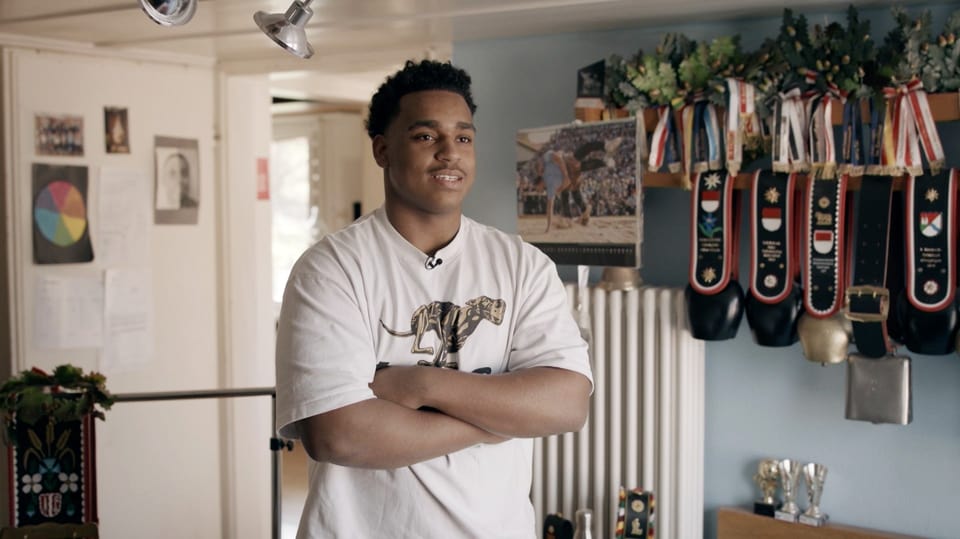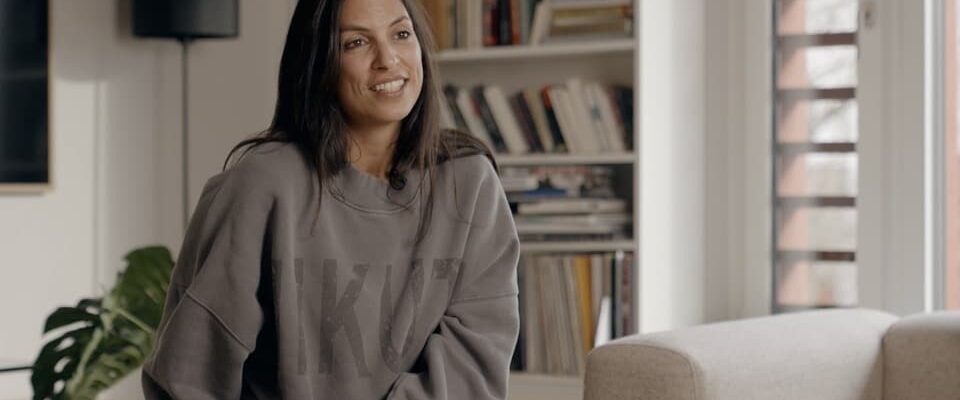Contents
Schwinger Sinisha Lüscher and author Olivia El Sayed talk about their bicultural background, their experiences with racism and what defines them today.
Switzerland is her home. This is where they grew up. And yet they are repeatedly asked about their origins. They prefer to talk about their passions.
Olivia El Sayed: the power of language
She tells stories that often take a comic turn, underscoring what is being said with gestures and lively facial expressions. Olivia El Sayed often laughs – also at herself.
Legend:
“We’re all just human and not so extremely different.” Olivia El Sayed calls for more understanding and empathy.
SRF
She actually prefers to write, ever since she was at school: “Writing was always better for me than talking.” Today she does both. The 41-year-old works as a freelance author and spoken word artist. She grew up in Pfungen near Winterthur, with a Swiss mother and an Egyptian father.
Of course, moments happened to me that would not have happened to me if I had a different background.
The fact that language is so important to her also has to do with her late father. He spoke in a mixture of German, Arabic and English. In her first book “Flowery Wordis” she lovingly describes his creative use of language.
Because of her background, she hasn’t experienced anything bad, she emphasizes. “But of course moments happened to me that would not have happened to me with a different background.” For example, the train attendant’s hint that she definitely wanted to travel in 2nd class.
It might not have been meant that way, she adds. And yet such moments reinforce a feeling she is familiar with: “One is not right. I’m never a full Swiss, but I’m also never a full Egyptian.” Today she reinterprets this impression in a positive way: “It is important for the feeling to learn that you are not nothing, but a little bit of both (…) and that results in a mixture.”
Sinisha Lüscher: the first black wrestling king?
Such a “mixture” is also the 17-year-old Sinisha Lüscher. His mother is Swiss and his father is Ghanaian. Lüscher is also “from here”, from Uerkheim in the canton of Aargau. He completed a commercial apprenticeship at the bank and practiced a traditional Swiss sport: wrestling.

Legend:
Once he won a sheep: Sinisha Lüscher with his awards and prizes
SRF
At over 100 kilograms, the youngster already has the typical posture of a “bad guy”. He is not the first wrestler in the family. Even the great-grandfather and the great-uncles on the mother’s side swung. “It’s a huge part of me. I love swings.”
At his very first wrestling festival, the young wrestler took 2nd place. Numerous bells and twigs at his mother’s house testify to the successes he has had in sawdust since then.
He wants more than others.
His trainer Gregor Bucher has known the ambitious athlete since the first training session: “He wants more than others.” Sinisha Lüscher says clearly what that means: He wants to be a king of wrestling, “the first black wrestling king”.
words with impact
The fact that he is not just a wrestler, but a black wrestler, is repeatedly brought up as a topic. Gregor Bucher tells of the first wrestling festivals that Lüscher took part in. There were young athletes who struggled to swing against a black guy. The worst thing the young swinger had to hear from an opponent: “You shit N** can wait until we’ve showered, then you can take a shower.”
Words that stick and cannot be pushed aside with muscle power. Or as Olivia El Sayed puts it: “You can feel the power of words when you think about the bad things that have been said to you. It hits you and you carry it around with you for a long time.”
